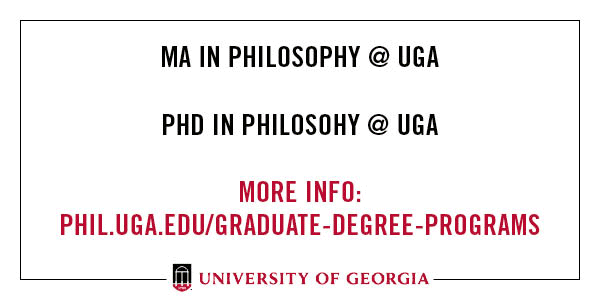Clearly, what we need is a ranking of philosophy rankings!
Published rankings of philosophers’ impact or importance might contribute to reinforcing toxic hierarchies, amplifying academia’s unfortunate obsession with prestige. So in some sense, yuck. Nonetheless, I confess to finding rankings of philosophers sociologically interesting. So much in the field depends upon perception. If you’re embroiled in the culture of Anglophone academic research philosophy, it’s hard not to be curious about, and care about, how the philosophers you admire are perceived, discussed, cited, and evaluated by others.

Scopus:
Comparing Three (No, Four) Top 20 Lists in Philosophy
by Eric Schwitzgebel
Naturally, then, I was interested to see the Scopus citation rankings of philosophers recently released at Daily Nous. As noted in the Daily Nous post and various comments, the list has some major gaps and implausibilities, in addition to reflecting the generally science-oriented focus of Scopus. Some people have suggested that Google Scholar is better. However, my own assessment is that, if you’re trying to capture something like visibility or influence in mainstream Anglophone academic philosophy, the best (still imperfect) measure is citation in the Stanford Encyclopedia of Philosophy.
————————————-
After writing this post, I noticed that PhilPapers can generate a list ranking philosophers by citations in the PhilPapers database. The results:
Besides my own insider’s sense, which you might or might not share, I see at least three sources of convergent evidence supporting the validity of the Stanford Encyclopedia list as a measure of prominence. One is Brian Leiter’s 2014 ranking of philosophy departments by SEP citation rates, which correlates not too badly with Philosophical Gourmet rankings from the same period. That suggests that departments with philosophers highly cited in the Stanford Encyclopedia tend to be rated well by Philosophical Gourmet raters. Another is Brian Leiter’s poll asking people to rank the “most important Anglophone philosophers, 1945-2000“, which generates a top five list very similar to the Stanford Encyclopedia top 5: Quine, Kripke, Rawls, Lewis, and Putnam. A third is Kieran Healy’s 2013 citation analysis of four prominent Anglophone philosophy journals (Phil Review, J Phil, Mind, and Nous), which yields a similar list of names at the top: Kripke, Lewis, Quine, Williamson.
- Nussbaum, Martha
- Lewis, David
- Floridi, Luciano
- Habermas, Jürgen
- Pettit, Philip
- Buchanan, Allen
- Goldman, Alvin I.
- Williamson, Timothy
- Lefebvre, Henri
- Chalmers, David J.
- Fine, Kit
- Hansson, Sven Ove
- Pogge, Thomas
- Anderson, Elizabeth
- Schaffer, Jonathan
- Walton, Douglas
- Stalnaker, Robert
- Sober, Elliott
- Priest, Graham
- Arneson, Richard
In contrast, when I see the Stanford Encyclopedia list I enjoy the comfortable feeling of prejudices confirmed. If asked to list the recent philosophers who been most influential in the mainstream Anglophone philosophy community, I’d probably produce a list not radically different from that one. I’m not saying that these are the most important philosophers, or the best, or those likeliest to be remembered by history (though maybe they will be). And I’m not saying that the list is perfect. But as a measure of approximate prominence in mainstream Anglophone philosophy, the SEP list seems pretty good and much better than the Scopus or Scholar lists.
- Martin Heidegger
- Jacques Derrida
- Hannah Arendt
- Friedrich Nietzsche
- Karl Popper
- Émile Durkheim
- Wahid Bhimji
- Slavoj Zizek
- Daniel C. Dennett
- Rom Harré (Horace Romano Harré)
- George Herbert Mead
- Mark D. Sullivan
- Martyn Hammersley
- Pierre Lévy
- David Bohm
- Ernest Gellner
- Yuriko Saito
- Mario Bunge
- Jeremy Bentham
- Andy Clark
In the following guest post*, Eric Schwitzgebel (UC Riverside), takes a look. (A version of this post first appeared at The Splintered Mind.)
- Lewis, David K.
- Quine, W.V.O.
- Putnam, Hilary
- Rawls, John
- Davidson, Donald
- Kripke, Saul
- Williams, Bernard
- Nozick, Robert
- Nussbaum, Martha
- Williamson, Timothy
- Jackson, Frank
- Nagel, Thomas
- Searle, John R.
- Van Fraassen, Bas
- Armstrong, David M.
- Dummett, Michael
- Fodor, Jerry
- Harman, Gilbert
- Chisholm, Roderick
- Dennett, Daniel C.
The top 20 Google Scholar profiles in “philosophy”:
What, if anything, can be learned by comparing several different accounts of philosophers’ citation rankings and other indicators of disciplinary impact?
My subjective impression of the three lists, as an active and fairly well-connected participant in the mainstream Anglophone research philosophy tradition is this. The Scopus list includes a bunch of very influential philosophers, but not an especially well-selected or well-ordered list. The Scholar list starts with several famous “Continental” philosophers who are historically important (but who aren’t much cited in the most elite mainstream Anglophone philosophy journals when I checked several years ago), then moves to a number of scholars who aren’t primarily known as philosophers (including some who are unknown to me). Only a few among the top twenty are mainstream Anglophone philosophers.
One striking difference from the Stanford Encyclopedia list is the high ranking of three figures sociologically somewhat outside mainstream Anglophone academic philosophy: Chomsky, Habermas, and Foucault. Dennett’s, Searle’s, and Chalmers’s comparatively high rankings might also partly reflect their broader uptake in academia, though that wouldn’t I think explain Goldman’s or Kim’s also comparatively high rankings.
[Laurie Frick, “Seven Days of a Man Age 25”]

- David K. Lewis
- Daniel C. Dennett
- John R. Searle
- Alvin Goldman
- Fred Dretske
- Noam Chomsky
- Thomas Nagel
- David Chalmers
- Jürgen Habermas
- Michel Foucault
- Jaegwon Kim
- Philip Kitcher
- Ned Block
- Kit Fine
- Ian Hacking
- Tyler Burge
- Gilbert Harman
- William G. Lycan
- Alasdair MacIntyre
- Martha Nussbaum
Eric Schliesser sometimes discusses what he call the “PGR ecology” — the Anglophone philosophical community roughly centered on late 20th-century philosophers from Princeton, Harvard, and Oxford, and their students. There is a sociological reality here worth noticing, in which prominence is roughly captured by belonging to departments highly rated in the Philosophical Gourmet, by publishing in or being cited in the four journals chosen by Healy, and by being cited in the Stanford Encyclopedia. The SEP citation metric does, I think, a much better job of capturing prominence in this community than do other better known measures like citation rates in Scopus, Google Scholar, or Web of Science.
The top 20 most cited philosophers in the Stanford Encyclopedia (full list and methodological details here):
Let’s compare the top 20 from Scopus, Google Scholar, and the Stanford Encyclopedia.



